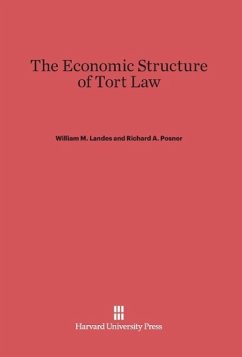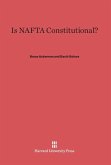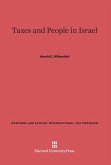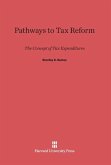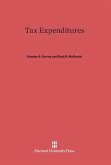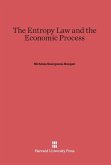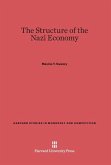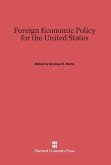Written by a lawyer and an economist, this is the first full-length economic study of tort law--the body of law that governs liability for accidents and for intentional wrongs such as battery and defamation. Landes and Posner propose that tort law is best understood as a system for achieving an efficient allocation of resources to safety--that, on the whole, rules and doctrines of tort law encourage the optimal investment in safety by potential injurers and potential victims.
The book contains both a comprehensive description of the major doctrines of tort law and a series of formal economic models used to explore the economic properties of these doctrines. All the formal models are translated into simple commonsense terms so that the "math less" reader can follow the text without difficulty; legal jargon is also avoided, for the sake of economists and other readers not trained in the law.
Although the primary focus is on explaining existing doctrines rather than on exploring their implementation by juries, insurance adjusters, and other "real world" actors, the book has obvious pertinence to the ongoing controversies over damage awards, insurance rates and availability, and reform of tort law-in fact it is an essential prerequisite to sound reform. Among other timely topics, the authors discuss punitive damage awards in products liability cases, the evolution of products liability law, and the problem of liability for "mass disaster" torts, such as might be produced by a nuclear accident. More generally, this book is an important contribution to the "law and economics" movement, the most exciting and controversial development in modern legal education and scholarship, and will become an obligatory reference for all who are concerned with the study of tort law.
The book contains both a comprehensive description of the major doctrines of tort law and a series of formal economic models used to explore the economic properties of these doctrines. All the formal models are translated into simple commonsense terms so that the "math less" reader can follow the text without difficulty; legal jargon is also avoided, for the sake of economists and other readers not trained in the law.
Although the primary focus is on explaining existing doctrines rather than on exploring their implementation by juries, insurance adjusters, and other "real world" actors, the book has obvious pertinence to the ongoing controversies over damage awards, insurance rates and availability, and reform of tort law-in fact it is an essential prerequisite to sound reform. Among other timely topics, the authors discuss punitive damage awards in products liability cases, the evolution of products liability law, and the problem of liability for "mass disaster" torts, such as might be produced by a nuclear accident. More generally, this book is an important contribution to the "law and economics" movement, the most exciting and controversial development in modern legal education and scholarship, and will become an obligatory reference for all who are concerned with the study of tort law.
The Economic Structure of Tort Law is a significant piece of scholarship...More wondrous still, Landes and Posner have produced a highly readable book.
This collection is a spirited defense of economic analysis...Together [with Steven Shavell's Economic Analysis of Accident Law] they constitute the most comprehensive defense of the economic analysis of tort law currently available, and are strongly recommended accordingly.
The prolific team of William Landes and Richard Posner have drawn upon their previous path-breaking work to issue [one of] the most important books in the law and economics of tort law since the release in 1970 of Guido Calabresi's The Costs of Accidents...Landes and Posner, who are always forceful and often controversial, directly challenge the charges of overdeterrence and underdeterrence, concluding that the common law of torts has succeeded admirably in achieving economically optimal incentives...Landes and Posner's thoroughly accessible work is an interesting and readable narrative...[An] excellent book...Landes and Posner have played a major role in replacing the traditional legal justification of the tort system based on notions of fairness and compensation with a concern for efficiency and deterrence. The profound revolution has come...Landes and Posner deserve considerable credit for identifying the extent to which efficiency considerations are significant in many areas of tort law.
This collection is a spirited defense of economic analysis...Together [with Steven Shavell's Economic Analysis of Accident Law] they constitute the most comprehensive defense of the economic analysis of tort law currently available, and are strongly recommended accordingly.
The prolific team of William Landes and Richard Posner have drawn upon their previous path-breaking work to issue [one of] the most important books in the law and economics of tort law since the release in 1970 of Guido Calabresi's The Costs of Accidents...Landes and Posner, who are always forceful and often controversial, directly challenge the charges of overdeterrence and underdeterrence, concluding that the common law of torts has succeeded admirably in achieving economically optimal incentives...Landes and Posner's thoroughly accessible work is an interesting and readable narrative...[An] excellent book...Landes and Posner have played a major role in replacing the traditional legal justification of the tort system based on notions of fairness and compensation with a concern for efficiency and deterrence. The profound revolution has come...Landes and Posner deserve considerable credit for identifying the extent to which efficiency considerations are significant in many areas of tort law.
The Economic Structure of Tort Law is a significant piece of scholarship...More wondrous still, Landes and Posner have produced a highly readable book.
This collection is a spirited defense of economic analysis...Together [with Steven Shavell's Economic Analysis of Accident Law] they constitute the most comprehensive defense of the economic analysis of tort law currently available, and are strongly recommended accordingly.
The prolific team of William Landes and Richard Posner have drawn upon their previous path-breaking work to issue [one of] the most important books in the law and economics of tort law since the release in 1970 of Guido Calabresi's The Costs of Accidents...Landes and Posner, who are always forceful and often controversial, directly challenge the charges of overdeterrence and underdeterrence, concluding that the common law of torts has succeeded admirably in achieving economically optimal incentives...Landes and Posner's thoroughly accessible work is an interesting and readable narrative...[An] excellent book...Landes and Posner have played a major role in replacing the traditional legal justification of the tort system based on notions of fairness and compensation with a concern for efficiency and deterrence. The profound revolution has come...Landes and Posner deserve considerable credit for identifying the extent to which efficiency considerations are significant in many areas of tort law.
This collection is a spirited defense of economic analysis...Together [with Steven Shavell's Economic Analysis of Accident Law] they constitute the most comprehensive defense of the economic analysis of tort law currently available, and are strongly recommended accordingly.
The prolific team of William Landes and Richard Posner have drawn upon their previous path-breaking work to issue [one of] the most important books in the law and economics of tort law since the release in 1970 of Guido Calabresi's The Costs of Accidents...Landes and Posner, who are always forceful and often controversial, directly challenge the charges of overdeterrence and underdeterrence, concluding that the common law of torts has succeeded admirably in achieving economically optimal incentives...Landes and Posner's thoroughly accessible work is an interesting and readable narrative...[An] excellent book...Landes and Posner have played a major role in replacing the traditional legal justification of the tort system based on notions of fairness and compensation with a concern for efficiency and deterrence. The profound revolution has come...Landes and Posner deserve considerable credit for identifying the extent to which efficiency considerations are significant in many areas of tort law.

